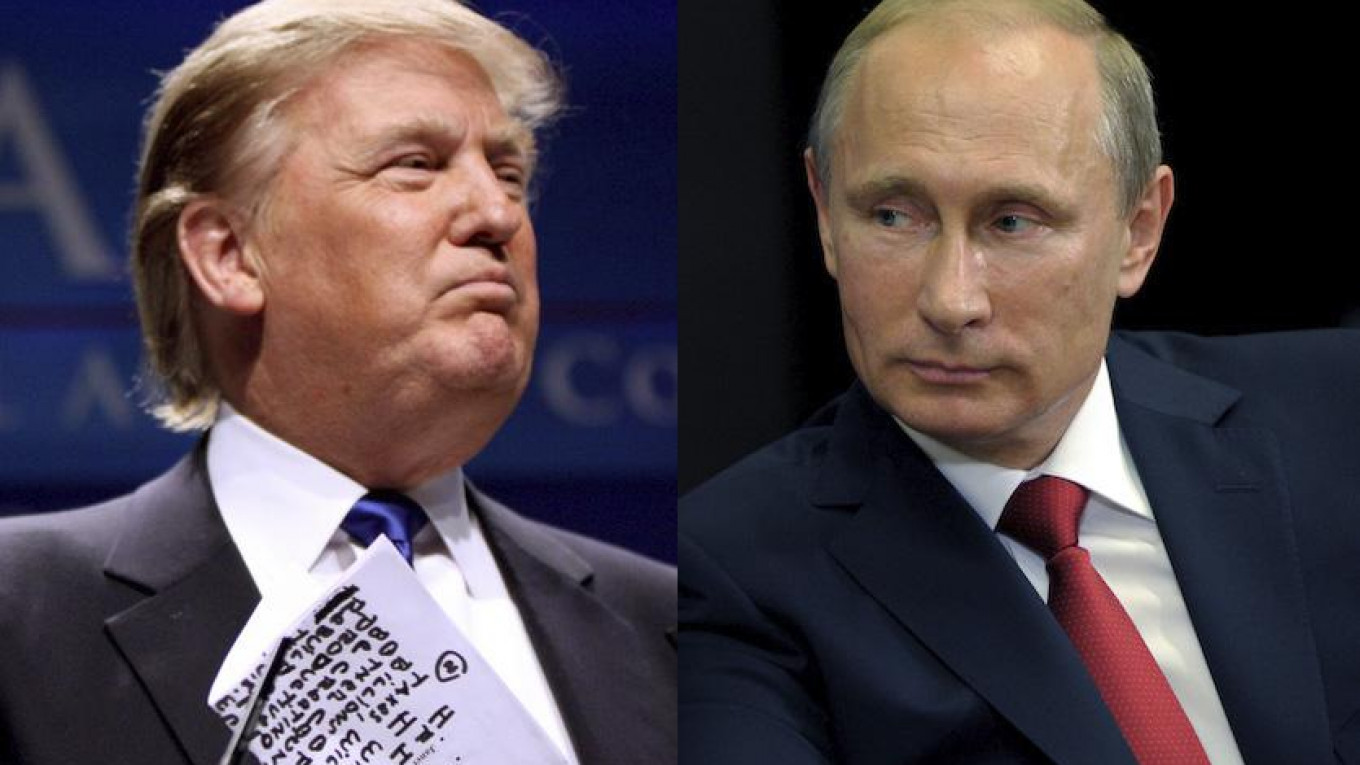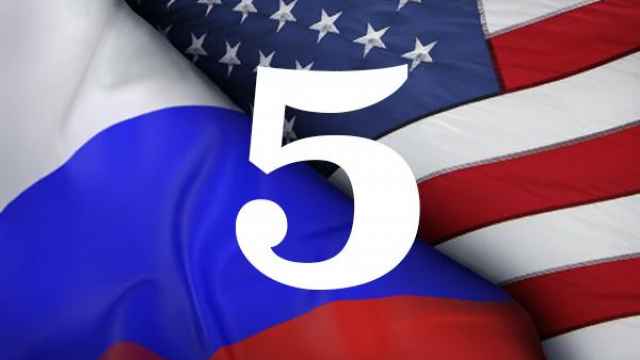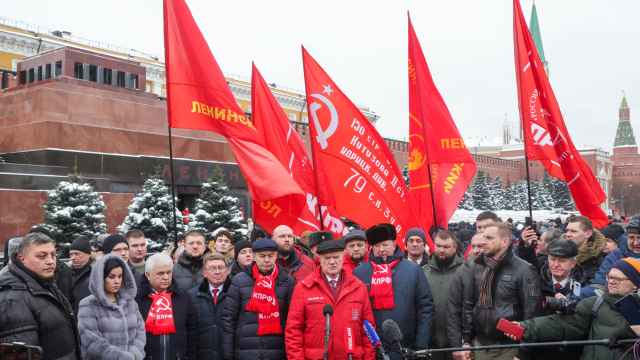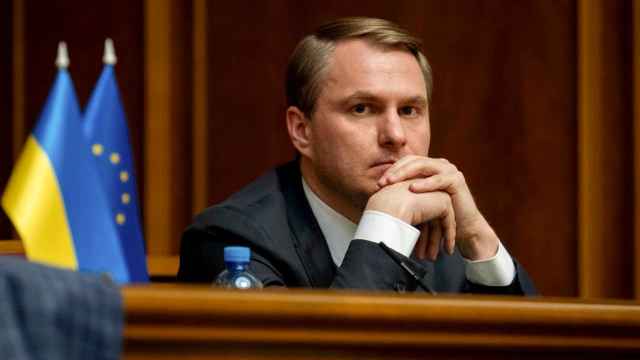On Friday, U.S. President Donald Trump and his Russian counterpart, Vladimir Putin, will hold their first face-to-face meeting.
Ahead of this widely anticipated encounter on the sidelines of the G20 summit in Hamburg, Germany, several eminent experts weigh in on the following questions:
1. What would be your recommendations to President Trump ahead of this meeting?
2. What do you believe to be the “low-hanging fruit” the two leaders can “pick” in their effort to improve bilateral relations (if any)?
3. What do you see as the most difficult or intractable bilateral issues?
*This is part one of a two-part series. See also: Russia's Expert Advice: How Putin Should Tackle His First Trump Meeting
1. Henry Hale
Professor of Political Science and International Affairs, Co-Director of the Program on New Approaches to Research and Security in Eurasia (PONARS Eurasia), George Washington University

Balancing Act
When the U.S. president next meets Putin, he needs to strike a careful, subtle balance between standing firm on issues where Russian behavior seriously threatens international stability (especially annexing other countries’ territory and cyberattacks) or basic human rights (repressive, anti-democratic behavior) and strongly pressing for cooperation on issues of genuine mutual interest and high global importance.
In the latter category I would first and foremost place deconfliction, especially when it comes to the war in Syria, where there is a real chance of an accidental event triggering a spiral of response-counterresponse that could lead to an extremely dangerous conflict between the U.S. and Russia.
The battle against terrorism is another area of serious mutual concern and some common interests.
For example, while we sharply disagree on the means, we do agree Islamic State* has to go, and we are all similarly opposed to the Taliban even though we may disagree on how best to neutralize it.
Strong cooperation in arms control is also imperative, and new technology makes the updating of old arrangements crucial.
The most difficult issues, of course, include Ukraine and the protection of human rights and genuine efforts at democratization. Here Russia’s leadership has high resolve and a worldview that differs significantly from that of the U.S. political establishment. It is unclear to what extent Trump shares the latter, but it would be unwise for the U.S. to abandon longstanding American commitments altogether.
This does not necessarily mean a militant response, of course. On the crucial issue of Ukraine, the U.S. is better advised to do what it can in a positive manner to promote successful economic and democratizing reforms in Ukraine.
A prosperous, democratic Ukraine would be a powerful answer to Kremlin attempts to demonstrate that its way is the only way.
Of course, this does not mean doing whatever Ukraine’s leadership wants. As a leading Ukrainian scholar argues, some “tough love” may be necessary to help Ukraine emerge from its current crisis.
Thorniest of all, of course, is the issue of Russian hacking in the 2016 presidential election and the U.S. president’s evident ongoing concern about his own legitimacy and authority. Given the stakes involved in the U.S.-Russian relationship, he should not let these political considerations either paralyze him or lead him to ignore true expertise on the relationship.
2. Robert Legvold
Marshall D. Shulman Professor Emeritus of Political Science, Columbia University

'Engage Moscow in Facing the Elephant'
In a reasonable world offering five recommendations to President Trump as he readies himself for his first meeting with President Putin should not be difficult. But at the moment this is anything but a reasonable world and, therefore, the greater challenge is how one gets from here to there.
Secretary of State Rex Tillerson’s way of framing the U.S.-Russia challenge and his reported initial plan for dealing with it make sense. He and his allies, including Fiona Hill in the White House, with apparent agreement from the Russia side, start from the notion that the two countries are in a very deep hole and need to stop digging, the stakes are too high, and rather than look back, it would be better to focus on what can be done to improve matters.
His putative three-part plan is sound, depending on its ultimate content: first, to address immediate, narrow issues where success could ease the way forward, such as resolving frictions surrounding consular facilities or strengthening the 1972 and 1989 U.S.-Soviet agreements preventing “dangerous incidents” by limiting the currently high-risk naval and air activity on the European coast — the low-hanging fruit.
The second part rightly focuses on making progress—even if modest—on the hard issues: Ukraine, Syria, the fight against IS, INF treaty violations, North Korea and Russia’s interference in U.S. elections. Progress will, in all instances, require compromises on both sides: in the Ukrainian case, reaching a deal other than Minsk II that—while not achieving the unattainable, i.e., a political settlement—secures peace in the east and movement toward the normalization of Russian-Ukrainian relations; in Syria, a genuinely reformed Syrian government and teeth in a cease-fire; for the INF, finding a path back to compliance; for IS, coordination beyond military de-confliction arrangements.
For the third part, strategic stability talks, neither I nor the administration can do better than the agenda that Steven Pifer lays out in his June 16 essay.
Were the administration capable of pursuing this three-part agenda—that is, able to generate the internal coherence and sense of purpose required to advance it—there would still remain the elephant in the room:
The strengthening anti-Russian consensus in the U.S. Congress and media, anchored in the furor over Russian meddling in the U.S. election and fear of more to follow, now stands like a massive steel bulwark against any step that might work to alter the relationship.
Unless the administration finds some way to engage Moscow in facing the elephant— and this needs to be done by quiet, calm diplomacy—the July summit and whatever follows will produce, at best, a modest bit of Kabuki theater and, more likely, a hardened U.S.-Russian Cold War.
3. Rolf Mowatt-Larssen
Director, Intelligence and Defense Project, Belfer Center
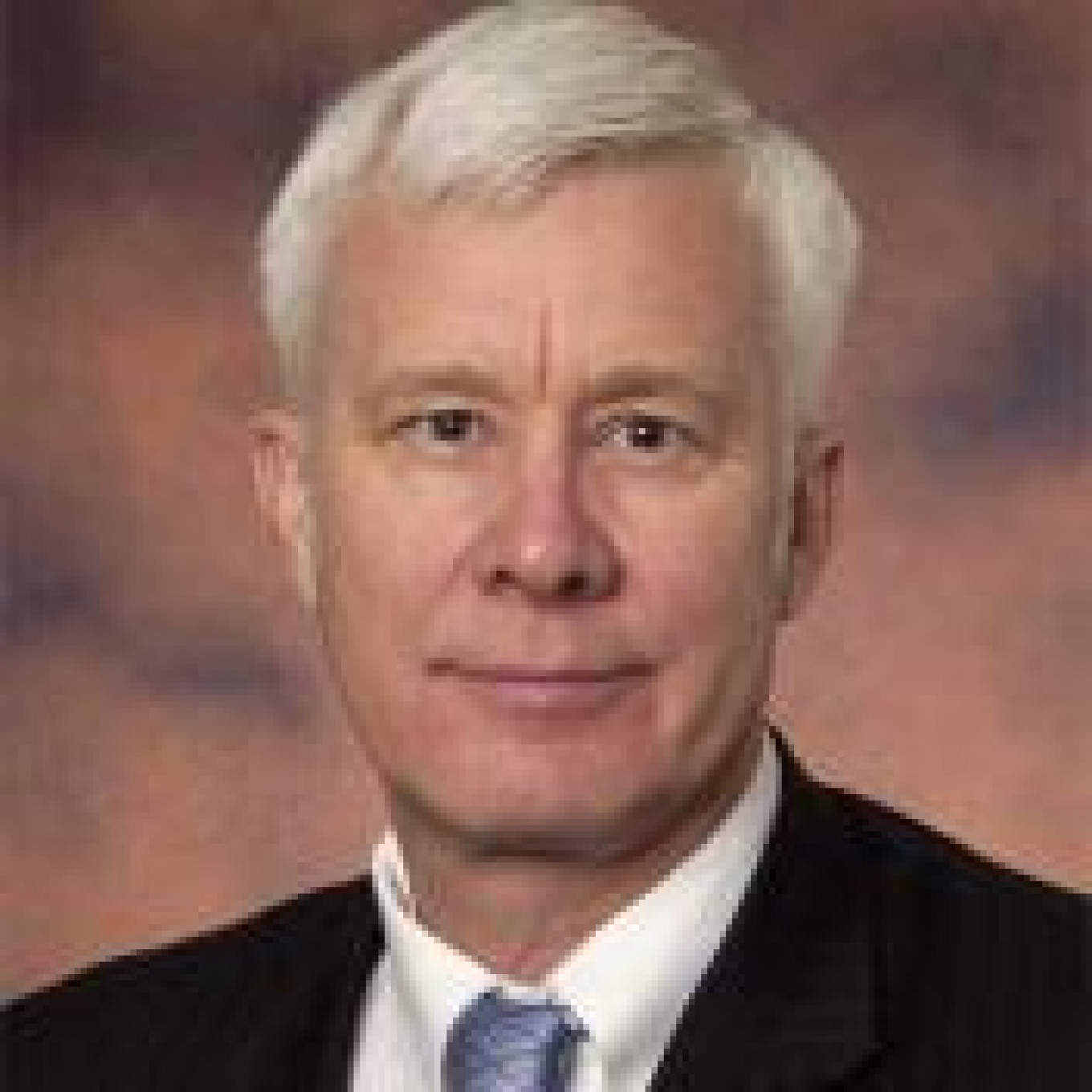
'Take a Page From History'
Tips to President Trump:
1.Recall from past U.S.-Russian summits that cooperation is possible even when the U.S. and Russia disagree on major issues, provided the leadership of both countries is committed to improving relations. You can expect to have to overcome challenges from forces who prefer confrontation to cooperation between our two countries.
Ronald Reagan and Mikhail Gorbachev slowly built up mutual trust despite many pre-existing obstacles and disruptions during years of negotiations, some of which mirror today’s problems, e.g., espionage scandals and tit-for-tat expulsions, as well as 1987 revelations of pervasive Russian eavesdropping of the U.S. Embassy in Moscow.
2. Don’t expect any breakthroughs. The first summit between Reagan and Gorbachev in 1985 came at a time of considerable tension between the two countries. The Soviet Army had invaded Afghanistan (1979). Martial law had been declared in Poland (1981). There was a power vacuum in Moscow after two short-lived general secretaries (Andropov and Chernenko). The results of the first summit were modest, featuring only six signed agreements on minor issues ranging from cultural and scientific exchanges to the environment. Accordingly, be content with setting the stage for step-by-step progress, rather than overpromising and under-delivering results.
3. Unapologetically call out areas of disagreement. Don’t make nice.
Mutual respect is shown by being tough and honest with one another, not by avoiding the thorny issues.
The most intractable issues confronting the U.S. and Russia lie in the challenges of maintaining strategic stability: balancing European and Russian security (defense of NATO and NATO enlargement); ballistic missile defense; advances in U.S. and Russian nuclear weapons doctrine, research and development; and nuclear modernization. Other major areas of disagreement to address: Ukraine, Syria, cyber hacking rules and related issues of interference in our respective internal affairs.
4. Identify areas of mutual interest. It's in the interests of both nations to work together to eliminate the threat of Islamic extremism and terrorism.
Other “low-hanging fruit” that is ripe for cooperation includes: preventing terrorists from acquiring weapons of mass destruction; expanding lines of communication between U.S. and Russian military to lower risks of misunderstanding and miscalculation; and increasing cooperation in Syria to end the war and work toward a political settlement. Lowering risks of regional conflicts is also in both countries’ interests—in North Korea, to ensure compliance with Iran’s nuclear deal and in parts of Africa and the Middle East.
5. Play the long game. Don’t forget there is no deal that can fix this relationship; patience is required to overcome the inevitable bumps in the road. The second Reagan-Gorbachev summit in October 1986 ended disastrously with Reagan’s commitment to “Star Wars” (SDI), which became a major obstacle to arms control. It wasn’t until the third summit in Washington, D.C. a year later that both parties made concessions on a wide range of issues.
6. Set a new tone from the top. Mistrust is a key barrier to making any improvement in relations. Before trust can be established, however, mutual respect must be earned. Both sides must make a better effort to hear out legitimate concerns and core interests of the other.
The U.S. and Russia are playing a dangerous zero-sum game in which each side assesses its success as harming the interests of the other.
Until this thinking changes, and both sides make a commitment to respect the national security interests of the other side, the freeze in bilateral relations will continue to deepen.
4. Steven Pifer
Senior Fellow, Brookings Institution

Mr. President: You will meet with Vladimir Putin at a time when the U.S.-Russia relationship is at its lowest point in more than 25 years. Putin carries a deep sense of grievance against the United States. Careful handling of this meeting is important for your developing relationship with Putin and your ability to manage the U.S.-Russia relationship in Washington. Here are five recommendations to bear in mind:
1. Start with process. It took years to get to this low point with Moscow. You will not be able to turn it around overnight. Endorse the Tillerson-Lavrov channel as the mechanism to resolve problems and to tee up possible agreements for your and Putin’s consideration.
2. Raise with Putin the increasing encounters between U.S. and Russian military forces and growing risk of accident or miscalculation. Maintaining the de-confliction channel in Syria is critical to ensuring that U.S. and Russian aircraft do not get in each other’s way. Propose regular contacts between Secretary Mattis and General Dunford and their Russian counterparts to deal with difficult issues, including how to reduce the possibility of an accident between U.S./NATO and Russian military aircraft and warships in and around Europe.
A mid-air collision between an Su-27 fighter and an RC-135 reconnaissance aircraft is a looming headache that you, Putin and the bilateral relationship do not need.
3. Reiterate to Putin what Tillerson has said to Lavrov about the Ukraine-Russia conflict: It poses a major impediment to improved U.S.-Russia relations. You should offer U.S. readiness to engage more actively to advance the prospects for a settlement of the conflict in the Donbass, though there is little sign that the Kremlin wants a settlement at this point. You might remind Putin that sanctions will remain in place until Russia does its part to implement the February 2015 Minsk II settlement agreement, but if/when Russia does so, you will push to ease U.S. and European Union sanctions.
4. Address arms control, which has generated positive momentum in the broader relationship in the past. You should urge Putin to join with you to preserve the 1987 Intermediate-Range Nuclear Forces Treaty, which Russia has reportedly violated by deploying a prohibited ground-launched cruise missile (Putin will raise concerns about certain U.S. activities, which could be addressed). You should return to Putin’s January idea of extending the 2010 New Strategic Arms Reduction Treaty to 2026. That could prove an early “win” for both of you and the bilateral relationship. The U.S. military’s strong support for New START would insulate you against any charge of an inappropriate concession to Moscow.
5. Raise Russia’s interference in the 2016 election, even though Putin will almost certainly deny it. If you do not, you will be hammered by the U.S. media and Congress—and will guarantee passage of legislation that will restrict your flexibility to adjust sanctions on Russia. You could suggest to Putin formation of a working group to develop rules of the road to govern cyber behavior between the two governments.
Finally, be wary of accepting on the spot any “big” offer that Putin makes.
He may try to lure you with a proposal that sounds good but has hidden downsides that are not readily apparent. You do not want to feed questions at home about collusion, and any deal struck in Hamburg that falls apart on your return to Washington will only put U.S.-Russia relations in a deeper hole.
5. Paul Saunders
Executive Director, Center for the National Interest

'Search for a New Tree'
As President Donald Trump prepares for his meeting with Russia’s President Vladimir Putin, this author humbly offers the following advice to Mr. Trump:
1. Avoid raising expectations prior to the meeting. Conversations on the margins of large multi-lateral gatherings provide very limited time to reach understandings on complex issues. The cancelation of planned talks between Under Secretary of State Thomas Shannon and Russian Deputy Foreign Minister Sergei Ryabkov further complicates any such attempts.
2. Don’t look for agreements simply to have something to announce. Especially in America’s current political environment, this seems unlikely to improve either the U.S. domestic political climate or the U.S.-Russia relationship. Conversely, don’t look for opportunities to posture publicly at Putin’s expense. He is adept at responding to such moves.
3. Prepare to hear an extensive list of Russia’s grievances, but focus on the future of the U.S.-Russia relationship.
No one can change the past or Putin’s perceptions of it.
4. In that spirit, describe in a matter-of-fact manner the potential costs to the United States and Russia that may result from an extended and deepening confrontation. Outline your view of the potential benefits in establishing a functional working relationship (not a friendship, a partnership or for that matter an alliance) between the two countries.
5. Define America’s goals and priorities clearly and press Mr. Putin to define Russia’s goals and priorities with equal candor and specificity.
The July meeting can be most useful as an exchange of strategic perspectives rather than an effort to address specific problems.
There is no longer any “low-hanging fruit” in the U.S.-Russia relationship that Washington and Moscow can easily harvest. To cooperate effectively, the two governments need to search for a new tree.
They will face considerable obstacles in doing so. The most notable include:
1. A deep lack of trust that cuts across every area in the U.S.-Russia relationship. Regardless of the motives, objectives or justifications of their behavior, each government’s (and each society’s) reaction to the other government’s efforts to influence its politics has dramatically worsened this.
2. Different values, including not only political values, but social values and in some cases even differing conceptions of morality. For example, where Americans have described moral imperatives to right wrongs, Russians have at times described moral imperatives to avoid making things worse.
3. Diverging views regarding the rules of the international system and how to apply them that contribute to differences over the use of force, the balance between state sovereignty and human rights and other issues. The Syria crisis exemplifies this.
4. An intensifying security dilemma in Europe, in which U.S. and Russian efforts to protect important security interests have established slow but steady escalation, especially following former Ukrainian President Viktor Yanukoych’s fall from power and Russia’s subsequent seizure of Crimea and intervention to support separatists in eastern Ukraine.
A wider security dilemma in the U.S.-Russia strategic nuclear relationship. Russia’s deployments of Iskander missiles in Kaliningrad and its apparent violations of the Intermediate-Range Nuclear Forces (INF) Treaty intensify U.S. security concerns. At the same time, while U.S. officials have insisted that American missile defense capabilities and plans do not threaten Russia, Moscow does not accept this.
*Islamic State is a terrorist organization banned in Russia.
This article was first published by Russia Matters. For the full version click here.
A Message from The Moscow Times:
Dear readers,
We are facing unprecedented challenges. Russia's Prosecutor General's Office has designated The Moscow Times as an "undesirable" organization, criminalizing our work and putting our staff at risk of prosecution. This follows our earlier unjust labeling as a "foreign agent."
These actions are direct attempts to silence independent journalism in Russia. The authorities claim our work "discredits the decisions of the Russian leadership." We see things differently: we strive to provide accurate, unbiased reporting on Russia.
We, the journalists of The Moscow Times, refuse to be silenced. But to continue our work, we need your help.
Your support, no matter how small, makes a world of difference. If you can, please support us monthly starting from just $2. It's quick to set up, and every contribution makes a significant impact.
By supporting The Moscow Times, you're defending open, independent journalism in the face of repression. Thank you for standing with us.
Remind me later.


